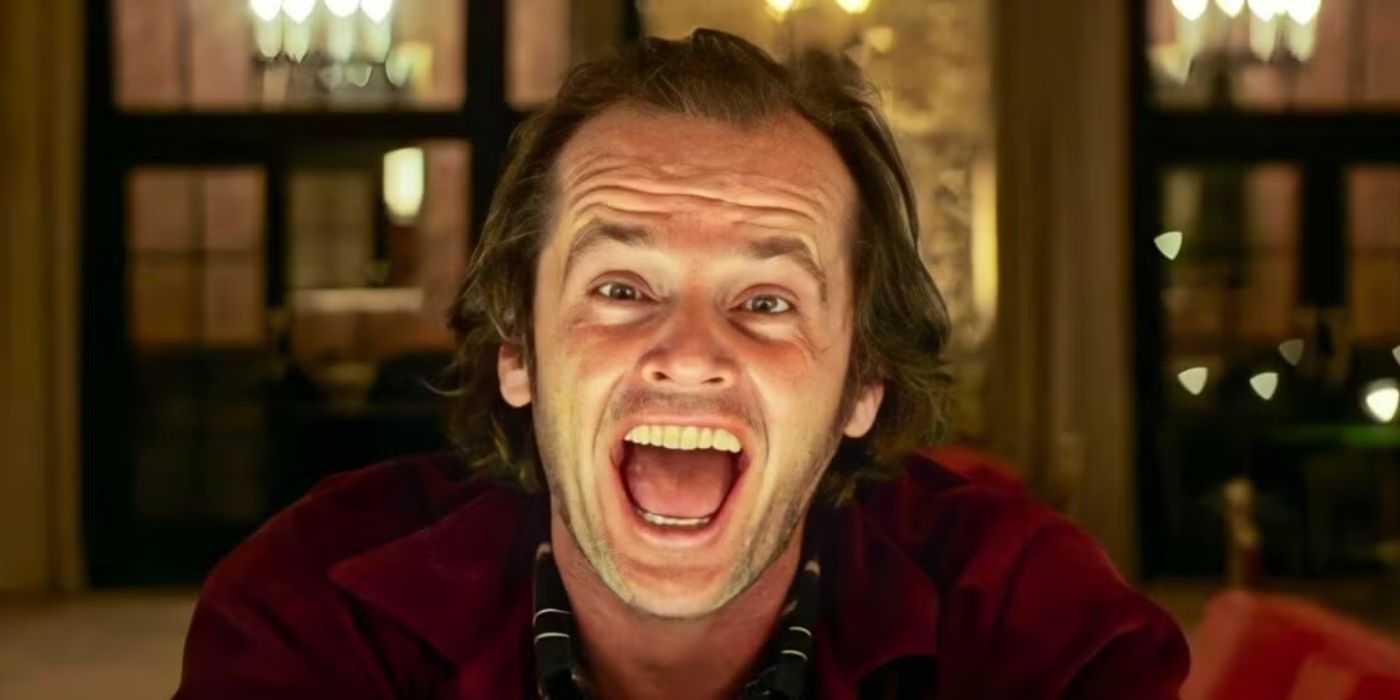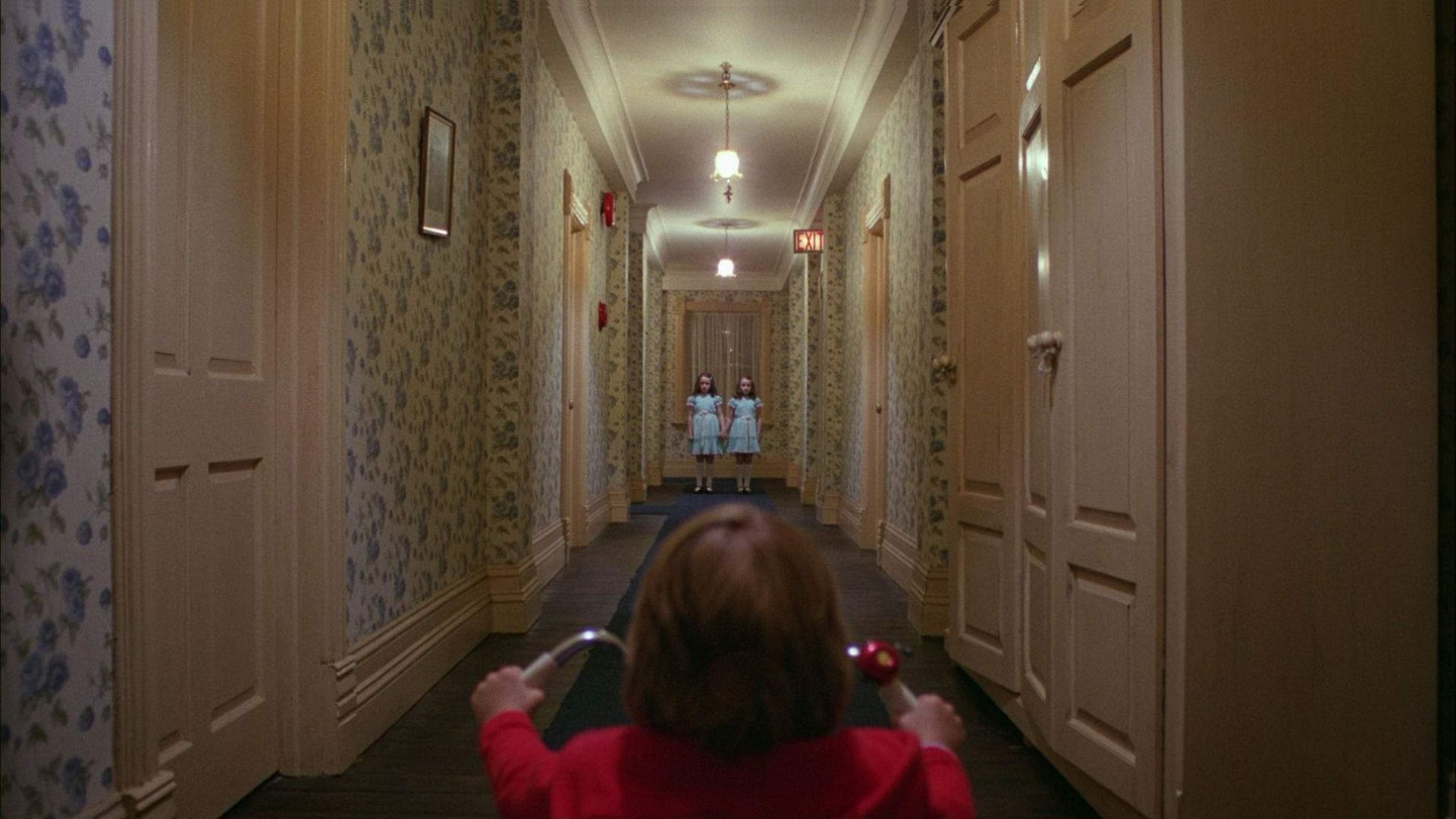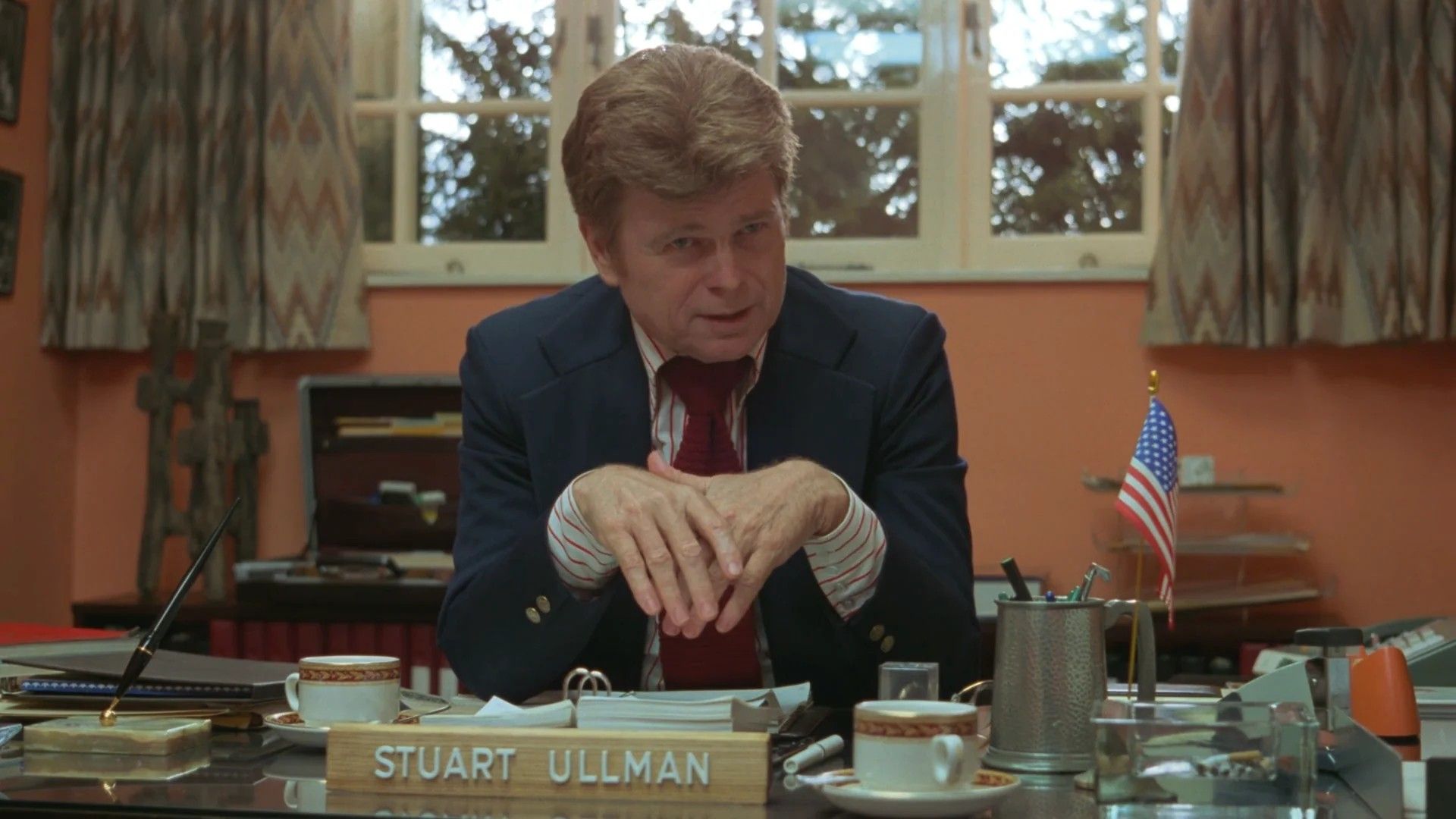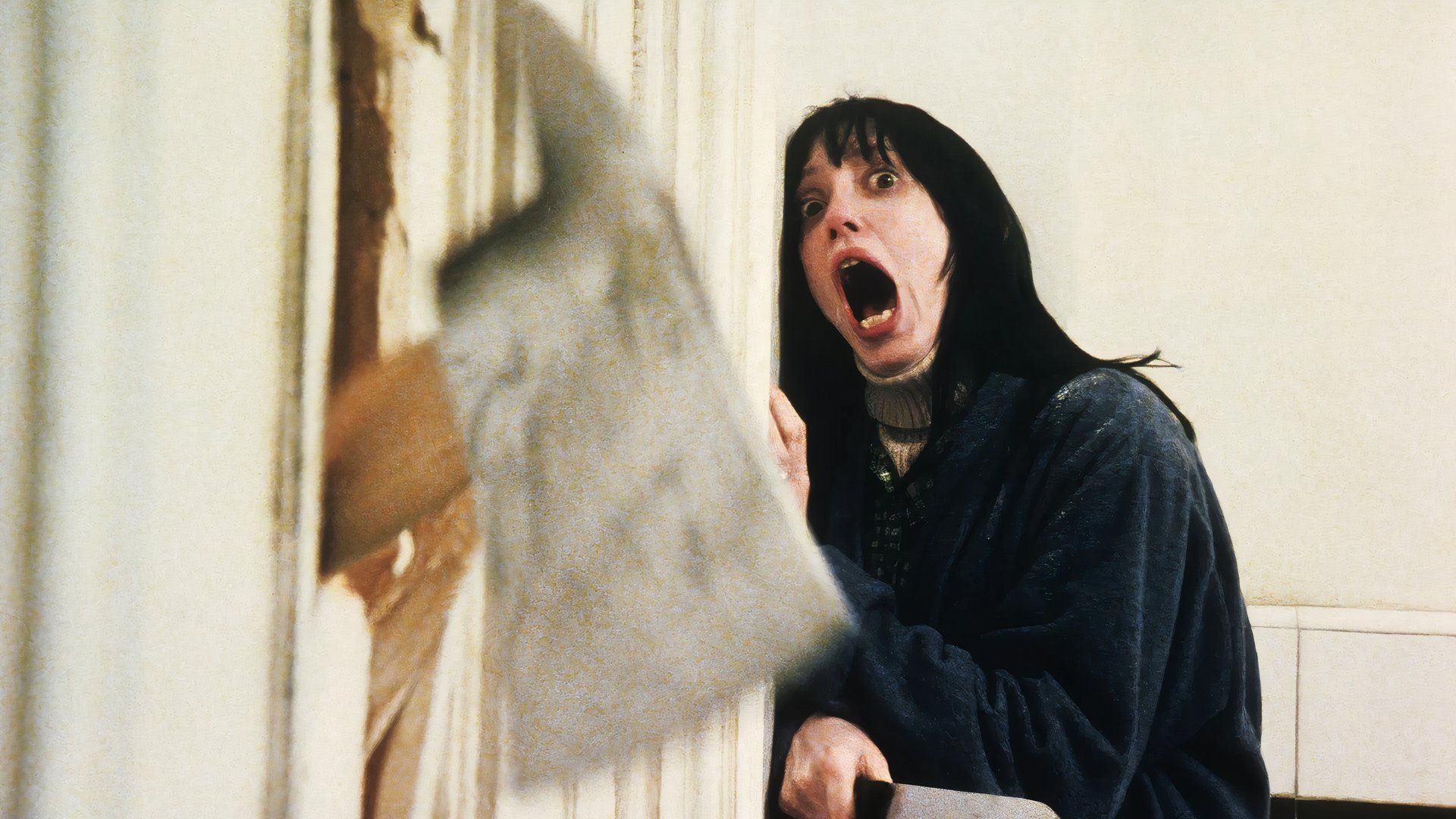
Stanley Kubrick’s 1980 movie version of Stephen King’s 1977 novel “The Shining” is widely considered one of the best and most influential horror films ever produced. Its memorable performances, catchy dialogue (“Here’s Johnny!”), and eerie visuals have earned it a cultural presence that only a select few movies possess. Moreover, Kubrick’s blending of art-house filmmaking methods into what was traditionally considered a low-brow genre has significantly impacted contemporary filmmakers in the “elevated horror” genre, such as Robert Eggers, Ari Aster, Jordan Peele, and Jennifer Kent.
Although it was well-regarded, upon its initial release, The Shining faced criticism from some quarters, even garnering two Razzie nominations. However, its harshest critic was none other than Stephen King. The author, who drew significant inspiration from his own life for the novel, vehemently objected to the film’s departures from the original story and labeled it as “a maddening, perverse, and disappointing movie” in his 1981 non-fiction work Danse Macabre. He often accused Kubrick of being overly detached and impersonal as a filmmaker. Here’s why King might be mistaken.
King’s Objections to Kubrick’s ‘The Shining’
One major issue King had with Kubrick’s interpretation was how he portrayed Jack Torrance, the main character of his novel, “The Shining.” As King battled alcoholism, writer’s block, sleeplessness, and aggressive impulses while penning the book, he painted Jack as a relatable everyman with the capacity for both cruelty and compassion. However, Kubrick’s film presents Jack as ominous and mentally unbalanced from the very beginning, which contrasts sharply with King’s portrayal.
The unsettling aura around Jack is primarily attributed to the choice of Jack Nicholson for the role, as Stephen King stated in 1983 that he was “not suitable” for the part. Additionally, King criticized Shelley Duvall’s portrayal of Jack’s wife, Wendy, expressing disappointment to the BBC in 2013 over her character’s limited role, which she described as mainly consisting of screaming and behaving foolishly. He even went so far as to label the film’s depiction of her character as “misogynistic.
The movie’s ambiguity about whether the hotel’s ghosts were real or imaginary didn’t sit well with King. Unlike the book, the film didn’t clearly establish the existence of the supernatural entities. This lack of clarity made the movie less engaging for King. He expressed his discontent to Playboy, stating that “Kubrick, a skeptic at heart, struggled to comprehend the inhuman evil of the Overlook Hotel. Consequently, he searched for evil within the characters… Since he couldn’t buy into it himself, he found it challenging to make the film convincing for viewers.
Is King Right About Kubrick’s Version of ‘The Shining’?

In several aspects, King’s analysis accurately reflects the departures Kubrick made from the original novel. King, identifying with his own creation, felt sympathy for Jack as a character tormented by the evil forces of the Overlook Hotel and his inner demons. However, Kubrick viewed Jack more like Alex from A Clockwork Orange (1971) or HAL 9000 from 2001: A Space Odyssey (1968), portraying him as a monstrous figure. Yet, it’s possible that King underestimates the importance of these differences when arguing they diminish the film’s thematic depth and emotional resonance.
Essentially, Kubrick’s The Shining serves as a warning about the fate of families with an alcoholic father, unlike Jack Torrance in King’s novel and film, who cannot improve or change for the better. In the words of Nathan Rabin from The Dissolve, “the movie portrays a man fully consumed by his demons instead of dealing with sobriety’s repercussions.” Given this perspective, Jack Nicholson’s role fits perfectly.
One could argue that King’s suggestion that the film’s unclear depiction of the hotel’s ghosts weakens its appeal is debatable, since this ambiguity actually deepens the movie’s examination of alcoholism and domestic abuse. For example, many of Jack’s encounters with the hotel’s spectral entities (who seem to prompt him towards drinking and harming his family) occur near mirrors, implying that these specters might simply be symbolic representations of his isolated, alcoholic psyche.
In the movie, Danny Lloyd, Jack’s son, experiences visions of two tragic girls who were killed by their previous caretaker at the hotel. It’s possible these visions stem from Danny’s dread that his own father could harm him in the same way. This fear is suggested because the film delves deeply into both the psyche of the abuser and the victim, causing audiences to feel apprehensive about the abuser and sympathetic towards the victim, despite some claims that Kubrick did not fully connect with his characters.
From Sea to ‘Shining’ Sea

In Kubrick’s movie, “The Shining,” the storyline goes deeper than just a family battling alcoholism and domestic issues. Instead, it presents a wider critique on harmful masculinity among white American men and the restrictive nature of the traditional nuclear family setup. Some viewers even believe that Kubrick hinted at connections between Jack’s insanity and violence with America’s history of racial discrimination and colonization. This theory gained popularity after the 2012 documentary film, “Room 237.
Although this idea might initially strike you as unlikely, there’s a wealth of evidence suggesting that Kubrick intended this to be the case. For example, throughout the movie, you’ll notice Native American symbols subtly integrated into the background, sometimes used inappropriately, such as the artwork decorating the hotel and the caricatured imagery on various food products in the pantry. The manager of the hotel who hires Jack, Stuart Ullman (Barry Nelson), mentions that the hotel was constructed on land considered sacred by Native Americans.
At one time, Jack compares his duties as a husband and father to the “white man’s burden” – a term first used by author Rudyard Kipling to symbolize the belief among white Europeans that they were obligated to ‘civilize’ Indigenous peoples who were considered primitive during colonization. This implies that the movie suggests Jack’s abusive behavior and descent into madness are not just personal flaws, but rather outcomes of a culture deeply rooted in white male supremacy and violence, which has significantly shaped America’s history.
The Immeasurable Legacy of ‘The Shining’

Although Stephen King’s views on Stanley Kubrick’s version of “The Shining” contrast with most film critics’ opinions, it’s not difficult to understand his perspective given his strong connection to Jack Torrance from the original novel. This highlights the importance of viewing books and their adaptations as distinct creative endeavors instead of mere duplicates.
As a devoted cinephile, I must express my admiration for both Stephen King and Stanley Kubrick, two giants in their respective fields. However, when it comes to “The Shining”, I firmly believe that Kubrick’s mastery reached an unparalleled zenith. Though King may have his own perspectives, the undeniable truth remains that Kubrick’s adaptation of “The Shining” stands among the most terrifying and thought-provoking horror films ever created.
Oh, and by the way, if you haven’t seen it yet or wish to revisit the Overlook Hotel, “The Shining” is currently streaming on Max. Enjoy the chills!
Read More
- Who Is Harley Wallace? The Heartbreaking Truth Behind Bring Her Back’s Dedication
- 50 Ankle Break & Score Sound ID Codes for Basketball Zero
- Basketball Zero Boombox & Music ID Codes – Roblox
- 50 Goal Sound ID Codes for Blue Lock Rivals
- Summer Games Done Quick 2025: How To Watch SGDQ And Schedule
- LINK PREDICTION. LINK cryptocurrency
- Revisiting Peter Jackson’s Epic Monster Masterpiece: King Kong’s Lasting Impact on Cinema
- 100 Most-Watched TV Series of 2024-25 Across Streaming, Broadcast and Cable: ‘Squid Game’ Leads This Season’s Rankers
- The best Easter eggs in Jurassic World Rebirth, including callbacks to Jurassic Park
- TikToker goes viral with world’s “most expensive” 24k gold Labubu
2025-05-17 22:02